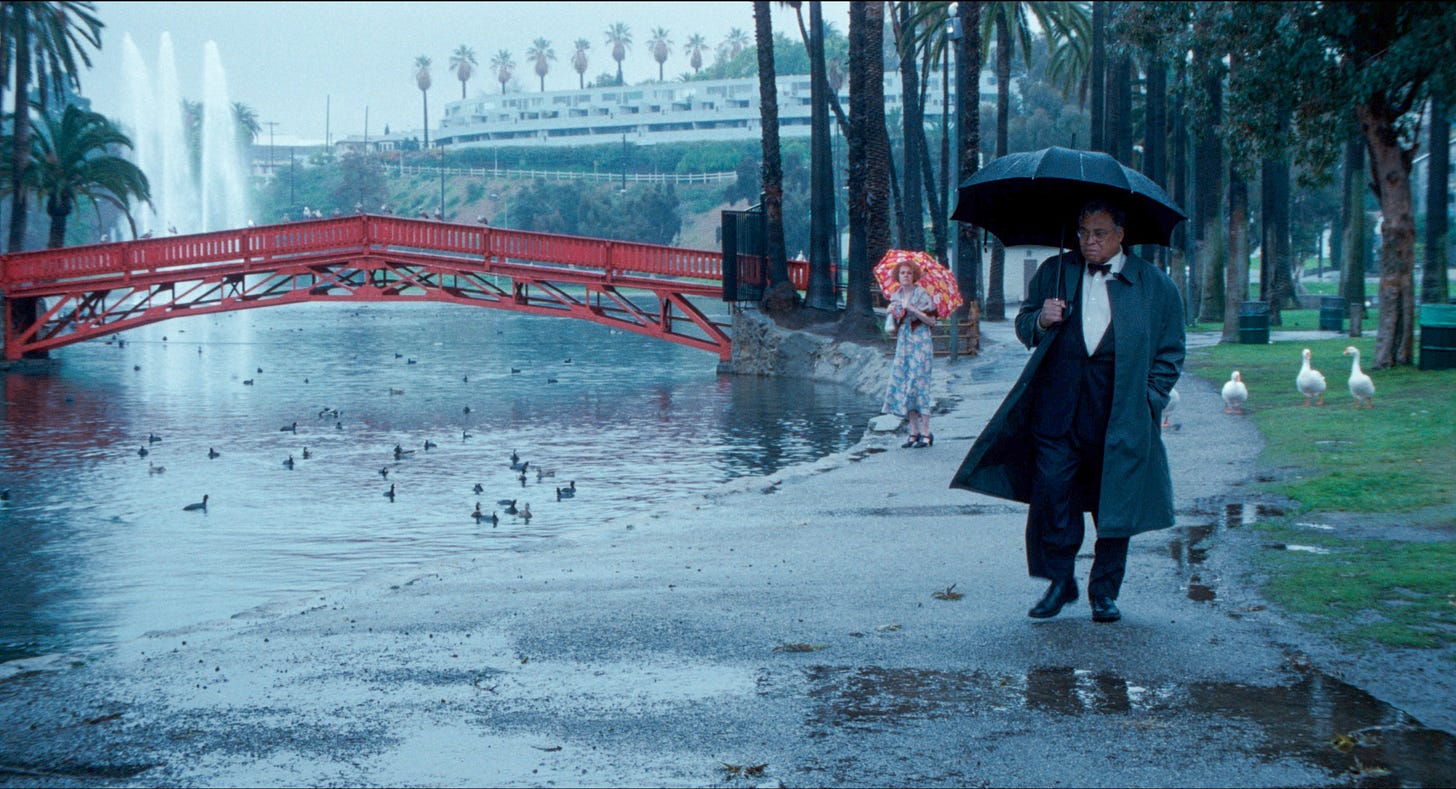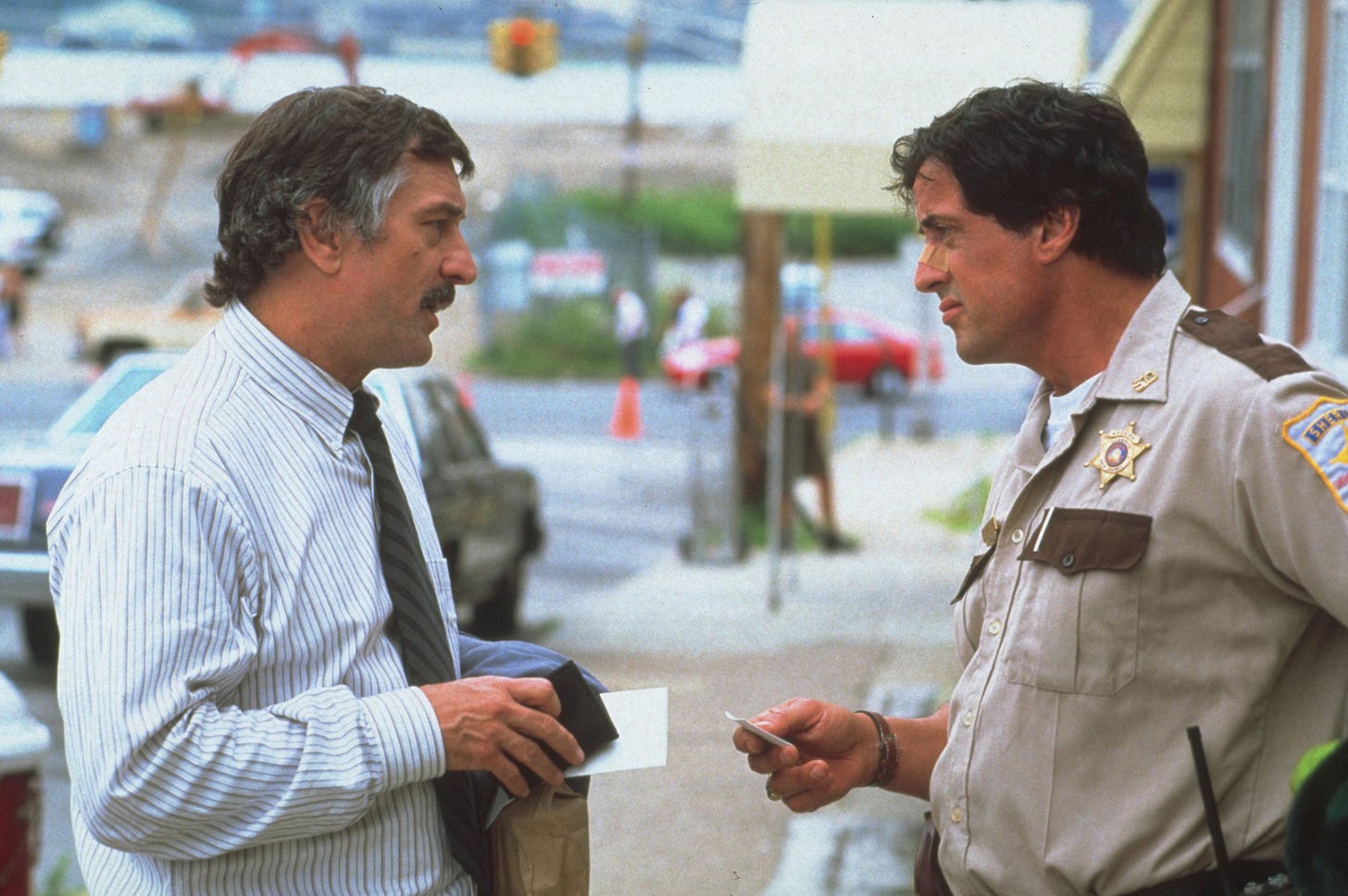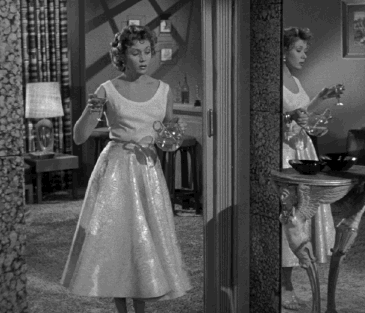Noirvember 2024: Columbia Noir, François Truffaut, and Palestinian Cinema
Monthly Roundup Post
Welcome to my monthly round up post. Here you will find all my writing from the previous month, plus a look at everything I watched.
This month was the 15th anniversary of Noirvember (!!!) and I celebrated it with two programming milestones: a collection of films on Criterion Channel featuring 30 film noir essentials, and five-day, nine-film celebration of Columbia Noir at The Brattle in Boston1. I also wrote a lot, appeared on a two-part episode of the Screen Drafts podcast, and contributed an essay to the long-awaited Blu-ray/4K release of Looking For Mr. Goodbar.
Letterboxd Journal: Columbia Noir: five under-the-radar gems for Noirvember
Female Filmmakers in Focus: Hannah Peterson on The Graduates
Letterboxd Journal: Best of the Fall Film Festivals 2024 - The Last Showgirl, Maria, and The Piano Lesson
Letterboxd Journal: Watchlist This!: Our November 2024 Picks of the Best New Bubbling-Under Films - Small Things Like These
Criterion Channel Live-Tweet: Experiment in Terror and The Crimson Kimono
This year’s Noirvember selections had some ups and downs, but as always a few gems. I also re-watched a lot more noir this year than in previous years, especially on the big screen, due to my programming opps and that was so much fun. As always, you can see everything I watch and read some quick thoughts over on Letterboxd.
Pat Boonnitipat’s gentle drama How to Make Millions Before Grandma Dies hit me right in the heart and brought back a lot of memories of sitting with my grandfather during his last week.
I loved Laila Pakalnina’s short documentary Dream Land, a hypnotic hymn to the animals who have unfortunately had to learn to adapt to human waste.
Mona Hatoum’s The Negotiating Table is a truly unnerving use of video aesthetics and audio manipulation to archive the tactility of what it was like to attend her performance art in person. It’s also a brutal critique of the West’s cold and dehumanizing detachment towards the human beings who become collateral in the face of colonial and capitalist violence in the Middle East.
While I was in Boston I was lucky enough to attend the opening night of a program called The Yugoslav Junction: Film and Internationalism in the SFRY, 1957 – 1988 at the Harvard Film Archive. This included a 35mm screening of Želimir Žilnik’s 1988 absurd comedy Tako se kalio čelik (The Way Steel Was Tempered). Loosely inspired by Lina Wertmüller’s The Seduction of Mimi, it follows the exploits of a steel worker as he navigates a changing world and where he fits in it.
After I watched the Stallone documentary Sly at TIFF last year I meant to watch James Mangold’s Cop Land for Noirvember but did not get around to it. I’m so glad I finally made the time for it this year. Mangold takes his influences (a bit of Prince of the City, a bit Rio Bravo) and brings them somewhere wholly new. Aside from Rocky, this is Stallone's best performance. So much is internal. So much is expressed through facial expressions. So much is expressed through subtle body language. The slow build to that final sequence is a wonder. And what's great is that EVERY actor in this movie is giving 100%, but Mangold lets Sly stay on this low register to get to that build. That final Rio Bravo-esque sequence is so gorgeously rendered from the blocking, to the sound design, to the cinematography. Just excellent.
Because of my trip to Boston I wasn’t able to see any films at this year’s Black Harvest Film Festival except for its closing night film, the new restoration of Charles Burnett’s The Annihilation of Fish, but oh my what a film it was! Burnett was on hand for a Q&A after the film, and that was also a hoot. It's funny and so decidedly weird and deeply romantic. It almost felt like a lost Flannery O'Connor story. Lynn Redgrave and James Earl Jones have off the charts chemistry and Margot Kidder is hilarious. I can’t wait until the restoration makes its way across cinemas next year so everyone can enjoy this true gem of a film.
I wrote 800 words about Sarah Ema Friedland and Rami Youniss’ Lyd a few newsletters back, so I recommend reading all of that, but I’ll say here is that like a lot of Palestinian documentaries, the film is dense with contextualizing history and the personal histories of individuals that are combined like a patchwork to create a shared, living history that encompasses everything that happened before 1948 and the on-going struggle against extermination – of culture, of people, and of dreams – that has happened since. It’s an essential film.
Sarah Wood’s documentary For Cultural Purposes Only is a brief, but powerful film about the importance of cinema as a form of archive, specifically of culture and human existence. But what happens when the archive of this cinema is destroyed? Memories of those films become their own archive. This film is in conversation with two other docs I saw this year: A Fidai Film and My Stolen Planet. I recommend all three.
P.S. - Don’t forget every week on Friday afternoons paid subscribers get my Directed By Women Viewing Guide, with picks for new releases and streaming hidden gems.
The programming is no longer on their website, but it included the new 4K restoration of In A Lonely Place, Experiment in Terror, My Name is Julia Ross on 35mm, The Big Heat, Human Desire, Over-Exposed on 35mm, The Sniper on 35mm, Underworld U.S.A., and The Crimson Kimono on 35mm.









Thanks for the reactions and commentary. I've been meaning to rewatch Copland for two decades. Thanks for the reminder ;)